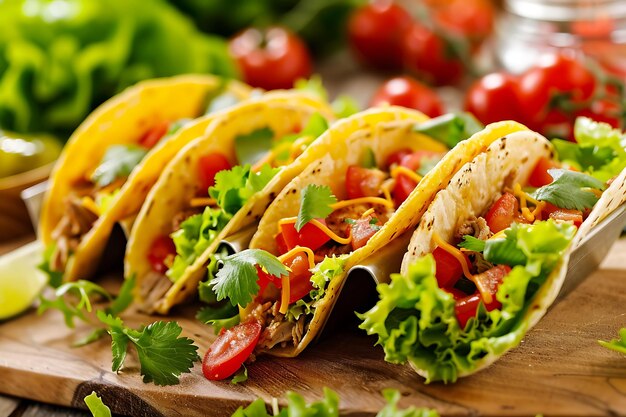Tacos are more than just a popular dish; they are a cultural icon in Mexico that embodies the country’s rich culinary heritage, history, and social traditions. This beloved street food, with its diverse fillings and vibrant flavors, serves as a reflection of Mexico’s regional diversity and the unity of its people. Here’s a deeper look at the cultural significance of tacos in Mexico.
Historical Roots
The origins of tacos can be traced back to the indigenous peoples of Mexico, who have been using corn as a staple food for thousands of years. The Aztecs and Mayans consumed corn tortillas with various fillings, making tacos one of the oldest forms of food in the region. The word “taco” itself is believed to have originated from the Spanish term “taco de pescado,” meaning “fish plug,” used to describe how food was wrapped in tortillas.
The Spanish colonization of Mexico in the 16th century introduced new ingredients, such as beef, pork, and spices, which transformed traditional dishes, including tacos. This blending of indigenous and Spanish culinary practices laid the foundation for the diverse taco variations we enjoy today.
A Symbol of National Identity
Tacos have become a symbol of Mexican identity, representing the country’s culinary traditions and heritage. Each region of Mexico boasts its own unique taco styles, influenced by local ingredients and cultural practices. For example:
- Tacos al Pastor: Originating in Puebla, these tacos feature marinated pork cooked on a vertical spit, influenced by Lebanese immigrants who brought shawarma to Mexico.
- Tacos de Carnitas: A staple in Michoacán, these tacos are filled with slow-cooked, tender pork and often accompanied by fresh cilantro, onion, and lime.
- Tacos de Pescado: Popular in coastal regions, these tacos are filled with battered and fried fish, showcasing the country’s rich seafood offerings.
These regional specialties highlight the diversity of Mexican cuisine and foster a sense of pride among locals. Tacos have become a way for Mexicans to celebrate their heritage, whether through family recipes passed down through generations or regional festivals that feature local taco variations.
Tacos in Social Life
In Mexico, tacos are not just food; they are a vital part of social life and community gatherings. Street food vendors serve tacos at bustling markets, fiestas, and public events, making them accessible to everyone. Sharing tacos among friends and family fosters a sense of community and connection.
Taco stands and taquerías (taco shops) are social hubs where people gather to enjoy food, catch up, and celebrate life’s moments. Whether it’s a casual dinner, a late-night snack after a celebration, or a quick meal during a busy workday, tacos are woven into the fabric of daily life in Mexico.
The Globalization of Tacos
As Mexican cuisine gained international recognition, tacos began to spread across the globe, adapting to local tastes and preferences. This globalization has led to innovative variations, such as Korean tacos and sushi tacos, blending culinary traditions in exciting ways. Despite these adaptations, traditional Mexican tacos remain deeply rooted in their cultural significance, often serving as a reminder of home for expatriates and a point of curiosity for food lovers worldwide.
Tacos are far more than a simple meal; they are a vibrant expression of Mexico’s culture, history, and community. They embody the country’s culinary diversity, foster social connections, and serve as a symbol of national pride. As tacos continue to evolve and inspire new generations, they remain a delicious and meaningful connection to Mexico’s rich heritage, inviting everyone to savor a taste of its vibrant culture.








